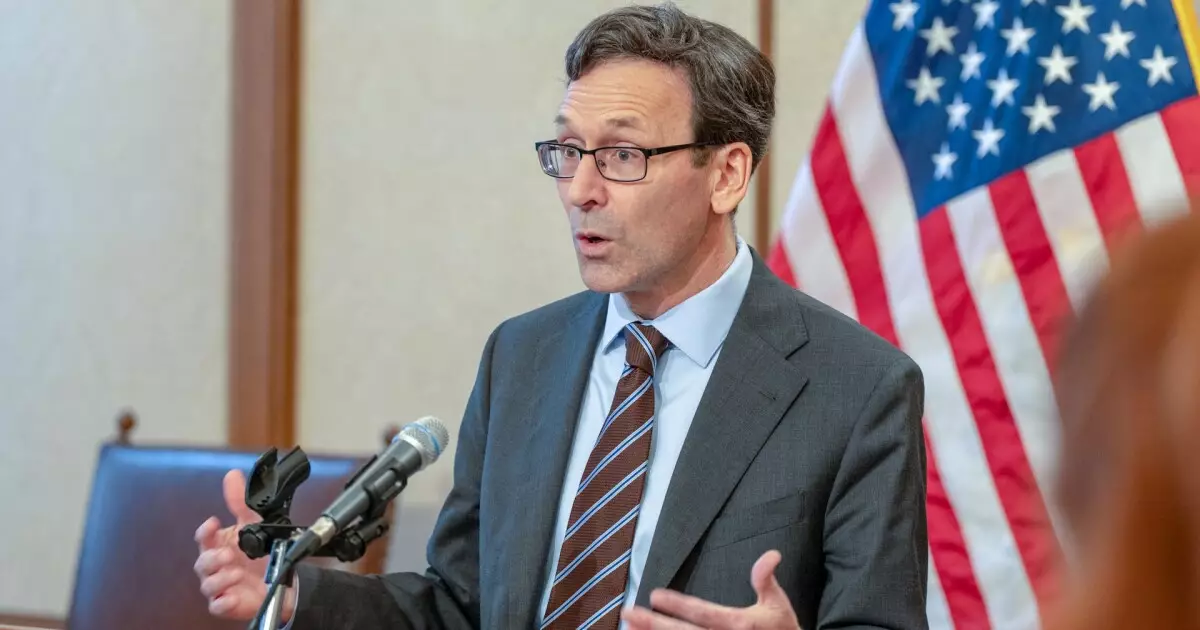In the world of politics, few issues resonate as deeply as the aftermath of natural disasters. The devastation suffered by Washington and North Carolina this past fall serves as a poignant reminder of the fragility of our systems in the face of nature’s wrath. The fallout from a bomb cyclone and Hurricane Helene has left both states grappling for recovery, only to be met with the disappointing news that their requests for federal disaster funding were denied by the Federal Emergency Management Agency (FEMA). With funding of critical importance, it raises a crucial question: has FEMA, a supposedly supportive agency, become another cog in the bureaucratic machine that stars individuals left in their wake?
Reports indicate that Washington’s request for $34 million following a severe winter storm was inexplicably denied, despite significant loss of life and infrastructure. The state’s hopes were pinned on the straightforward criteria that clearly outlined eligibility for such assistance. Yet, FEMA managed to find a way to sidestep responsibility, leaving both the new governor and affected communities scrambling for clarity and aid. The situations in Washington and North Carolina suggest a worrying trend where the federal government’s response does not align with the imperative of immediate human need.
Severe Damage and Human Cost
Turning our gaze toward North Carolina, we witness the tragic implications of such bureaucratic indifference. Hurricane Helene was not merely a natural disaster; it became a catastrophe that claimed over 100 lives, a staggering number that leads one to question whether the agency truly understands the human cost associated with its policies. Governor Josh Stein’s plea for 180-day reimbursement was grounded in reality, a direct response to the immense suffering his constituents have faced. Yet even that was brushed aside as FEMA’s Administrator Cameron Hamilton claimed the request lacked merit.
It is baffling to consider $59.6 billion in damage estimates and still witness a government entity that should champion disaster response miss its mark entirely. The suffering of families rendered homeless by the storm is not theoretical; it is palpable. Governor Stein’s expression of disappointment reflects a sentiment felt across the affected states, where people’s rebuilding efforts hinge on federal support. The emotional toll on residents trying to recover from loss is compounded by bureaucratic stonewalling, an issue that parents, children, and entire communities must navigate.
The Political Implications
FEMA’s decisions resonate particularly within a political context, serving as a heartbreaking example of how interconnected politics and survival have become. The reluctance of the agency to dispense aid raises eyebrows, especially given the context of the Trump administration’s legacy. The president’s threats to eliminate FEMA position it—along with its budget cuts—as a shadow of its former self. This decline, compounded by the agency’s inconsistent responses to requests, fosters not only frustration but a profound sense of urgency that calls for transformative reforms.
Suspicion regarding the underlying motives of FEMA looms larger as we break down the narrative. Given the state of governance in the U.S., where agencies can be manipulated for political gain or neglectful oversight, it becomes all too easy to fear that help is determined by geography, political affiliation, or the whims of leadership rather than the rational need for support in times of crisis. The disappointment expressed by both Governors Ferguson and Stein is not merely rhetorical; it is a signal that citizens from various political backgrounds are united in their demand for accountability.
A Call for Better Governance
In a time when civic responsibility is of utmost importance, the actions and neglect of agencies like FEMA raise serious questions about our governance structure. It underscores an urgent need for reform, a redirection toward accountability rather than complacency. The communities affected by these disasters deserve a government that prioritizes their immediate needs over bureaucratic metrics or political convenience.
The growing frustration with FEMA’s lack of support serves as both a wake-up call and a rallying cry for change. The disaster-stricken states of Washington and North Carolina have shown resilience in the face of calamity, but they can only persevere with federal aid that is both timely and effective. Anything short of that is not just a failure—it’s a disservice to the very fabric of democracy and community welfare, a clamor for action that cannot go unheeded.

